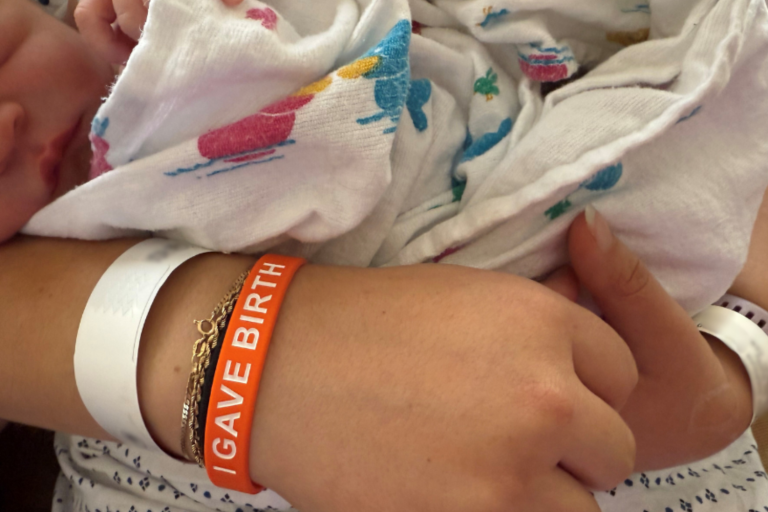Graduate Student News
Olga Radovic, a graduate student, performing with the UConn Symphony Orchestra at von der Mehden Recital Hall
Three Minute Thesis (3MT®) and Graduate Student Showcase
As part of the 2026 Graduate Student Appreciation Week at the University of Connecticut, The Graduate School invites you to apply for and participate in the Three Minute Thesis (3MT®) and Graduate Student Showcase, an event that celebrates the impact, creativity, and purpose behind graduate students’ work through brief, engaging presentations for a general audience. The showcase will take place on Wednesday, April 8, 2026, from 8:30am to 12:30pm at Konover Auditorium in The Dodd Center for Human Rights and is open to degree-seeking graduate students from all UConn campuses.
Application Deadline: Friday, February 6, 2026, at 5:00 PM ET
Goal of the Event:
For all degree-seeking graduate students at UConn to gain experience in communicating the significance of their work to a non-specialist audience in 3 minutes or less.
Timeline:
| Tuesday, January 20, 2026 | Application opens |
| Friday, February 6, 2026 | Application deadline for graduate students |
| Friday, February 20, 2026 | Decisions made, graduate students notified |
| Friday, March 6, 2026 | Creating Effective Presentations workshop |
| March 2-13, 2026 | Individual feedback sessions |
| Wednesday, April 8, 2026 | Final competition |
Rules for the 3-minute presentation:
- A single static PowerPoint slide is permitted (no slide transitions, animations or ‘movement’ of any description, the slide is to be presented from the beginning of the oration).
- No additional electronic media (e.g. sound and video files) are permitted.
- No additional props (e.g. costumes, musical instruments, laboratory equipment) are permitted.
- Presentations are limited to 3 minutes maximum and competitors exceeding 3 minutes are disqualified.
- Presentations are to be spoken word (e.g. no poems, raps, or songs).
- Presentations are to commence from the stage.
- Presentations are considered to have commenced when a presenter starts their presentation through movement or speech.
- The competition is judged by a panel of professionals with wide ranging academic and non-academic expertise.
- The decision of the adjudicating panel is final.
Application opens soon.
Connect with The Graduate School on social media for updates and highlights from UConnGSAW26 on LinkedIn, Instagram, X (formally Twitter) and Facebook.
UConnGSAW26, We See You, We Appreciate You!
Spring 2026 Graduate Student Timely Topics Series
The Graduate School’s Timely Topics is a series of learning opportunities for students, faculty, and staff to engage with subject matter experts on topics relevant to graduate education. The student track of this series features sessions that highlight University resources and supports, answer questions about academic processes and procedures, and provide strategies to help students successfully navigate their graduate career. All sessions are offered virtually.
Register for a Session | View the full student track schedule and session descriptions
Spring 2026 Student Sessions:
Getting to Conferral: Master’s Degrees and Graduate Certificates
This session will discuss the Office of the Registrar’s degree audit process for master’s degrees and graduate certificates, including 6th Year Certificate programs. Degree Audit staff will share auditing terms and timeline, degree requirements for Plan A and Plan B, as well as the thesis submission process. Time will be available at the end of the session for participants’ questions.
Date: Wednesday, February 11, 2026
Time: 11am – 12pm
Facilitator: Sandra Cyr, Master’s Degree and Graduate Certificate Programs Registrar Specialist
Getting to Conferral: Doctoral Degrees
This session will discuss the Office of the Registrar’s degree audit process for doctoral (Ph.D.) students. Degree Audit staff will share auditing terms and timeline, degree requirements, the master’s on the way process, and the dissertation submission process. Time will be available at the end of the session for participants’ questions.
Date: Wednesday, February 11, 2026
Time: 2pm – 3pm
Facilitator: Jenn Horan, Doctoral Degree Registrar Specialist
You’re Not an Imposter! (We promise.)
Many graduate students struggle with feeling like an imposter, including feeling like they don’t belong in graduate school and will be “found out”. This session will dive into Imposter Phenomenon, including its roots, how it impacts our academic and personal lives, and strategies to combat it.
Date: Wednesday, February 25, 2026
Time: 11am – 12pm
Facilitators: Kim Curry, Director of Graduate Student and Postdoctoral Support, The Graduate School & Megan Petsa, Director of Graduate Student Administration, The Graduate School
Accessible Scholarship: Building Inclusive Theses and Dissertations
Your research deserves to be accessible to everyone. In this workshop, you’ll discover how simple choices like using descriptive headings, true tables, and alt text, can remove barriers and make your dissertation or thesis inclusive for all readers. These same practices will strengthen your ability to create accessible materials in your future academic or professional work. In addition, with new Title II regulations taking effect by April 2026, now is the perfect time to understand accessibility standards and ensure your work meets these upcoming requirements.
Date: Wednesday, March 11, 2026
Time: 11am – 12pm
Facilitator: Karen Skudlarek, IT Accessibility Coordinator, ITS
From Grad Student to Postdoc: Navigating a Successful Transition
Are you considering a position as a postdoc after you graduate? Moving from graduate school to a postdoctoral position marks a significant shift in your education and training. This workshop will help you prepare for that transition by addressing key topics such as selecting a postdoc, understanding expectations, establishing productive mentoring relationships, and setting professional goals. Participants will also explore how to balance research, career development, and personal wellbeing during this pivotal stage.
Date: Wednesday, April 1, 2026
Time: 11am – 12pm
Facilitator: Melanie Sinche, Director of Graduate Student and Postdoc Success, The Graduate School
Upcoming GA Registration Deadline
As a reminder, all students employed as Graduate Assistants are required to maintain full-time student status (6 or more credits), as noted in their offer letter and The Graduate Catalog. Employment as a GA is a result of student status, therefore it is recommended that you register by December 1, and it is required that you are registered for a minimum of 6 credits before the start date of your employment (either January 7 or January 8, 2026). Please be aware that if you do not enroll in the minimum 6 credits required to maintain full-time student status, the University cannot employ you as a GA.
To register now, log into Student Admin. You can also find helpful information, resources, and to-do items specific to your role as a GA, including information about GA health insurance and deadlines for enrolling in GA payroll deductions to pay your fee bill, at the Graduate Assistant Onboarding page.
If you have any questions about this requirement or need assistance, please don’t hesitate to reach out to megan.petsa@uconn.edu.
Graduate School News from UConn Today
- columns: 4
- pictures: true
- number-of-posts: 8
- safe-fetch: 1
- attempted-request: https://today.uconn.edu/wp-rest/wp/v2/posts?posts_per_page=8&adjacent-posts=true&_embed
Community, Collaboration, and Preparation
The Graduate School is dedicated to the welfare and progress of its students. We strive to strengthen this through a commitment to the ideas of creating community, promoting collaboration, and addressing your academic, professional, and career preparation. UConn is committed to fostering a diverse and dynamic culture that prepares you to meet the challenges of a changing global society.
The Graduate School leads and coordinates a variety of activities and resources to navigate your pathway through graduate school and to enrich the overall personal and professional experience of graduate students and postdoctoral scholars. Our vision for training of graduate students and postdoctoral scholars rests on three pillars as outlined in our academic plan.
Community: The Graduate School will enhance the quality of life for graduate students and postdoctoral scholars by nurturing an engaged community of scholars that includes all disciplines and all campuses.
Collaboration: The Graduate School will foster the development of inter-, cross-, multi-, and trans- disciplinary research and teaching programs by removing barriers to cross-departmental, cross-program, and cross-campus graduate and postdoctoral education.
Preparation: The Graduate School will enhance career and professional development of graduate students and postdoctoral scholars through programs designed to enhance discipline-independent, transferable skills. We utilize a framework of three categories to help students and scholars prioritize their activity: Professional Engagement, Career Development, Personal Growth.







